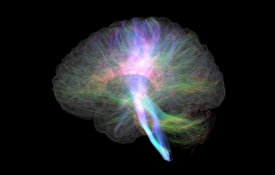-
Evolution Could Explain Why Psychotherapy May Work for Depression
A consensus has emerged in recent years that psychotherapies—in particular, cognitive behavioral therapy (CBT)—rate comparably to medications such as Prozac and Lexapro as treatments for depression. Either option, or the two together, may at times alleviate the mood disorder. In looking more closely at both treatments, CBT—which delves into dysfunctional thinking patterns—may have a benefit that could make it the better choice for a patient. The reason may be rooted in our deep evolutionary past.
-
When Should You End a Conversation? Probably Sooner Than You Think
While studying for his master’s degree at the University of Oxford, Adam Mastroianni confronted a fear common to many party goers: Would he get stuck in a conversation with no polite way out? Then, Mastroianni had another thought: Perhaps his future conversation partner had the same concern. “What if we’re all trapped in conversations because we mistakenly think the other person wants to continue?” he says. Now, 5 years and one scientific publication later, Mastroianni has discovered both fears are well-founded: Most conversations don’t end when people want them to. ...
-
Adam Grant: Why the Best Leaders Love Being Wrong
Many first-time entrepreneurs share a similar narrative: They stumbled upon a problem in need of solving and, against all kinds of odds, worked like crazy to come up with the best solution to it. "I just had to figure it out!" they often say. "I felt like such an imposter!" That early period can be one of the most fruitful and special times in the life of an entrepreneur: You're eager to learn and act on that new knowledge.
-

March/April Observer
The human brain contains more than 100 billion neurons and trillions of connections. In six articles, this issue explores how psychological scientists are unpacking its mysteries in research labs all over the world.
-

‘Explicit Instruction’ Provides Dramatic Benefits in Learning to Read
When it comes to learning to read, new research suggests that explicit instruction—a phonics teaching method in which the relationship between sound and spelling is taught directly and systematically—is more effective than self-discovery through reading.
-

Methodologies and the Evolution of Science
Reflecting on the President’s Column in the March/April issue of the Observer, NPR science correspondent Joe Palca, who earned a PhD in psychology from the University of California, Santa Cruz, offers his unique take on

